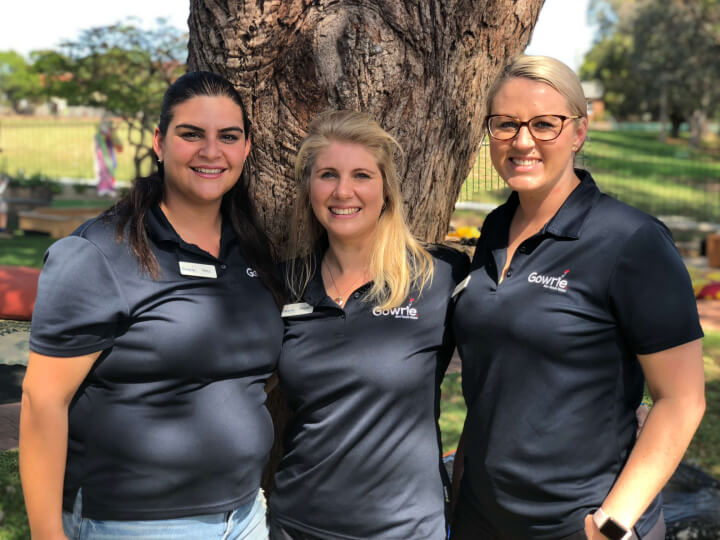Key Points
- Critical friends help you address and improve practice
- Cirlce of Support (CoS) and its impact on practice - bringing together early childhood educators as critical friends together within a CoS.
- You don’t have to be in a leadership position or be an experienced educator to be or to have, a critical friend.
On this page
How can it help professional reconnection?
What is a Circle of Support (CoS)?
Building your own Circle of Support
What are the benefits of attending this webinar?
Have you ever wondered what critical friendship is? Or, how this relates to processes of reflective inquiry we have in place in our early childhood programs?
Dr Diane Kashin is currently writing a book on the concept of critical friendship – and shares her insights into this practice in a short interview with Jessica Horne-Kennedy
.
This is the first time you have presented to early childhood teachers and educators in NSW. Can you share a little about who you are, where you are from and the work that you currently do?
Thank you for this opportunity! I am beyond thrilled to connect with early childhood teachers from New South Wales! I am also an early childhood teacher who spent years working directly with children and then teaching early childhood education students. I am the mom of three adult  children and two (almost three) grandchildren. I live in Ontario, Canada, in a region just north of the big, cosmopolitan city of Toronto. I feel very fortunate to live in York Region and to experience four very distinct seasons amongst the trees, trails, lakes, hills, and valleys. In 2018, I decided that it was time to stop teaching because honestly, I was tired of the marking! Since then, I have focused on writing, consulting, and presenting. It keeps me connected to a sector that I love and very much wants to give back to!
children and two (almost three) grandchildren. I live in Ontario, Canada, in a region just north of the big, cosmopolitan city of Toronto. I feel very fortunate to live in York Region and to experience four very distinct seasons amongst the trees, trails, lakes, hills, and valleys. In 2018, I decided that it was time to stop teaching because honestly, I was tired of the marking! Since then, I have focused on writing, consulting, and presenting. It keeps me connected to a sector that I love and very much wants to give back to!
This two-part series focuses on critical friendship – this may be a new idea for some. Can you tell us what critical friendship means and how does it relate to early childhood education?
The theory of critical friendship has been around for a few decades but most of the research has focused on educators of older children. We experience different spheres of friends in our life. The friends that share our professional context can be a source of support and can help us reach professional learning goals when they become critical friends. A critical friend takes “the time to fully understand the context of your work” and the goals you are working towards. “The friend is an advocate for the success of that work” (Costa & Kallick, 1993, p. 50). Critical friends help us address and improve practice. Let’s say, you have a friend that you work with who is having difficulty writing meaningful documentation. As a critical friend, you will offer critique, not criticism from a position of love because you want the best for your friend. It is not always easy to recognize the need to change, your role as a critical friend is to make it easier because you are there to support, encourage and help your friend shine.

Due to teaching in a worldwide pandemic, many early childhood practitioners have experienced first-hand the stressors of being separated from colleagues, children, and families they work with. In what ways do you think that critical friendship can offer a tool for professional reconnection?
Working in the early years can feel isolating. Critical friends make a concerted effort to lift each other up to a point where you feel less lonely. Your critical friend is your sounding board. Your critical friend is always there for you. Turn to your friends during difficult times. That is what friends are for! Friendship has played an important part in my professional learning and growth. I have always sought out friends. Not all of them became critical friends. Perhaps, had I understood more about critical friendship, I would have been able to manage those friendships differently. When you are in a critical friendship duo, you accept that you are not in competition with your friend. Therefore, you don’t feel threatened by the successes of your friend. I can’t imagine navigating a difficult work environment without a critical friend! What a challenging two years it has been for early childhood educators! I very much value the work that has been done to keep children playing in safe, healthy, and joyful learning environments. I hope that all early childhood educators from all over the world can have a critical friend who is your champion! Early childhood educators deserve nothing less.
In one of your recent blog posts (The Beginning of Beautiful Friendships: Circles of Support for Early Childhood Education | Technology Rich Inquiry Based Research (wordpress.com)) I read about a Circle of Support (CoS) for ECE you established. Can you share how this began and what has been involved?
While writing my book on critical friendship, I found research that focused on critical friendship circles. I had never heard of this concept. Here in Ontario, we have been encouraged to form or be a part of Communities of Practice (CoP). I have tried to start a CoP and I have been invited to be part of a CoP. In both cases, there was something lacking. I started thinking about the concept of a Circle of Support (CoS) for ECEs based on the theories of critical friendship and was inspired by critical friendship circles. What would be the impact on practice, to bring together early childhood educators as critical friends together within a CoS? I looked to my relations within my province and invited 15 others to join a pilot CoS. We had our first gathering last month. These wonderful individuals who are willing to give their time, hearts and minds to this pilot project will help me develop protocols that others can use to form their own CoS. This will constitute the final chapter of my book and I am so excited to share what we learn and experience.
How could educators begin their own Circle of Support?
I am learning that beginning a CoS is not a simple task. I do know that it is important to begin with an authentic shared experience where everyone feels a sense of belonging. We were able to achieve this using the protocols of a traditional Indigenous Sharing Circle, led by Dr. Hopi Martin who is one of my cherished critical friends. Each of us shared who we are, where we are from and what is in our hearts as we passed around a virtual feather. This is not something that others should try to duplicate as the way each CoS begins should be dependent on the relationships of the individual calling the circle. This ensures that the CoS begins in a good way that is respectful. I will be developing more suggestions about beginning a CoS that can be used by any early childhood educator, anywhere in the world. The main idea is that it begins with a shared experience where everyone feels that their voice is heard and that they are an equal and valued member of the circle. In our case, we began the pilot virtually. Even though we are from different parts of a large province we will eventually have a face-to-face meeting, but with the ongoing issues of the pandemic, our meetings will be virtual.
At our next gathering, I am thinking that it will be interesting to go around the circle to share our professional friend experiences, both negative and positive. I am hoping that one or two members of the circle will want to be “Featured Friends” for that and each subsequent gathering. The “Featured Friend” will have the opportunity to share hope, dream, concern, or goal for their practice, without interruption or judgement. The circle will then respond with warm (encouraging) or cool (challenging) feedback. With the virtual platform, we can do that with cameras and mics on or written in the chat room. The circle will work very hard not to shift the focus from the featured friend. We will learn from these experiences and our new knowledge will be shared in the course!
After attending this course, what do you see would be some benefits for educators and teachers?
I see many benefits! My intention is that what is shared in the course will be accessible to everyone. You don’t have to be in a leadership position or be an experienced educator to be or to have, a critical friend. My hope is that the friendships that are formed will be held within our hearts as we continue to move through this transformative time. I hope that we continue to grow, improve our practice, all the while, strengthening confidence and building capacity, knowing our friends are there for us.









